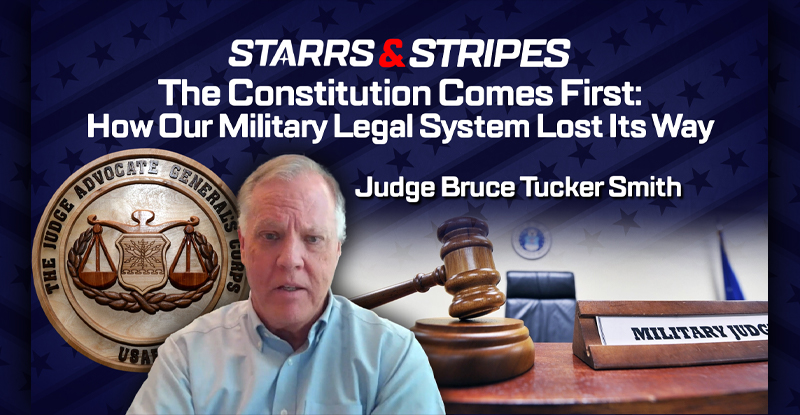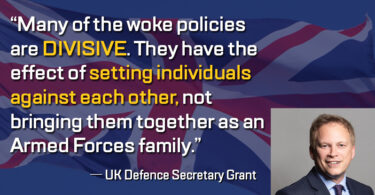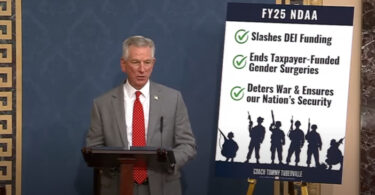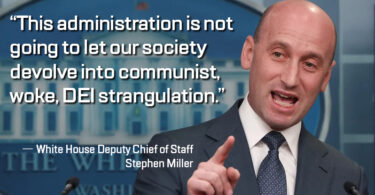On this episode of STARRS & Stripes, host Al Palmer talks with Judge Bruce Tucker Smith, a 21-year veteran JAG officer and former administrative law judge, who reveals how military legal services were compromised by diversity, equity, and inclusion (DEI) policies that prioritized ideology over combat readiness and the Constitution.
Topics they discuss:
- Most JAG officers (70%) enter service directly from law schools that promote leftist ideologies
- Military lawyers failed their duty by allowing illegal racial quota systems to be implemented
- The infamous August 2022 memorandum from Air Force leadership violated anti-discrimination laws
- Military attorneys must remember their client is the service itself, not individual commanders
- Too many career-focused officers lacked courage to oppose policies that undermined readiness
- The Marines’ approach of making officers Marines first and lawyers second should be emulated
- Future reforms should include reconnecting JAGs with operational military experience
- Secretary Hegseth was right to fire JAG leaders who had lost the trust of their clients
- Character and integrity in military service means putting mission before personal advancement
Join STARS in strengthening our military, restoring the warrior ethos, and ensuring transparency in national defense.
Watch:
Listen:
Read articles by Judge Bruce Tucker Smith:
Episode Expanded Description: An important conversation that cuts to the heart of what has gone wrong in our military legal system—and offers a courageous roadmap for restoration. Fifth-generation military officer and 21-year JAG veteran Judge Bruce Tucker Smith delivers a masterclass on professional responsibility and constitutional duty that every American concerned about our armed forces needs to hear.
Smith pulls back the curtain on how Diversity, Equity, and Inclusion initiatives infected military legal services, revealing that approximately 70% of military attorneys enter service directly from law schools where “soft Marxism” has become the dominant ideology. These attorneys, often without prior military experience, failed to understand that their client wasn’t an individual commander but the service itself—and ultimately, the Constitution they swore to defend.
The most damning evidence of this failure came in August 2022 when Air Force leadership issued a memorandum implementing racial quotas throughout the service—a blatantly illegal action that military lawyers either enabled or failed to stop. “Where were the attorneys who had the responsibility to make sure that memorandum was never written and never saw the light of day?” Smith asks, pointing to an ethical collapse that prioritized career advancement over professional duty.
The conversation examines how Secretary of Defense Pete Hegseth was absolutely justified in firing the Judge Advocate Generals of both the Army and Air Force—not because they were “guardrails” against executive overreach, but because they had failed their fundamental duty to their client. Smith advocates for reforms including making JAGs “officers first, lawyers second” like the Marine Corps model, having fitness reports written by line commanders rather than other lawyers, and ensuring military attorneys reconnect with operational realities.
Have we lost the concept that character and integrity must come before career advancement? Smith doesn’t pull punches: “Sometimes you’ve got to pull out that saber and fall on it,” he says, noting that career risk pales compared to what combat troops face. Join us for this essential discussion on restoring the warrior ethos to our military justice system before it’s too late.








Leave a Comment